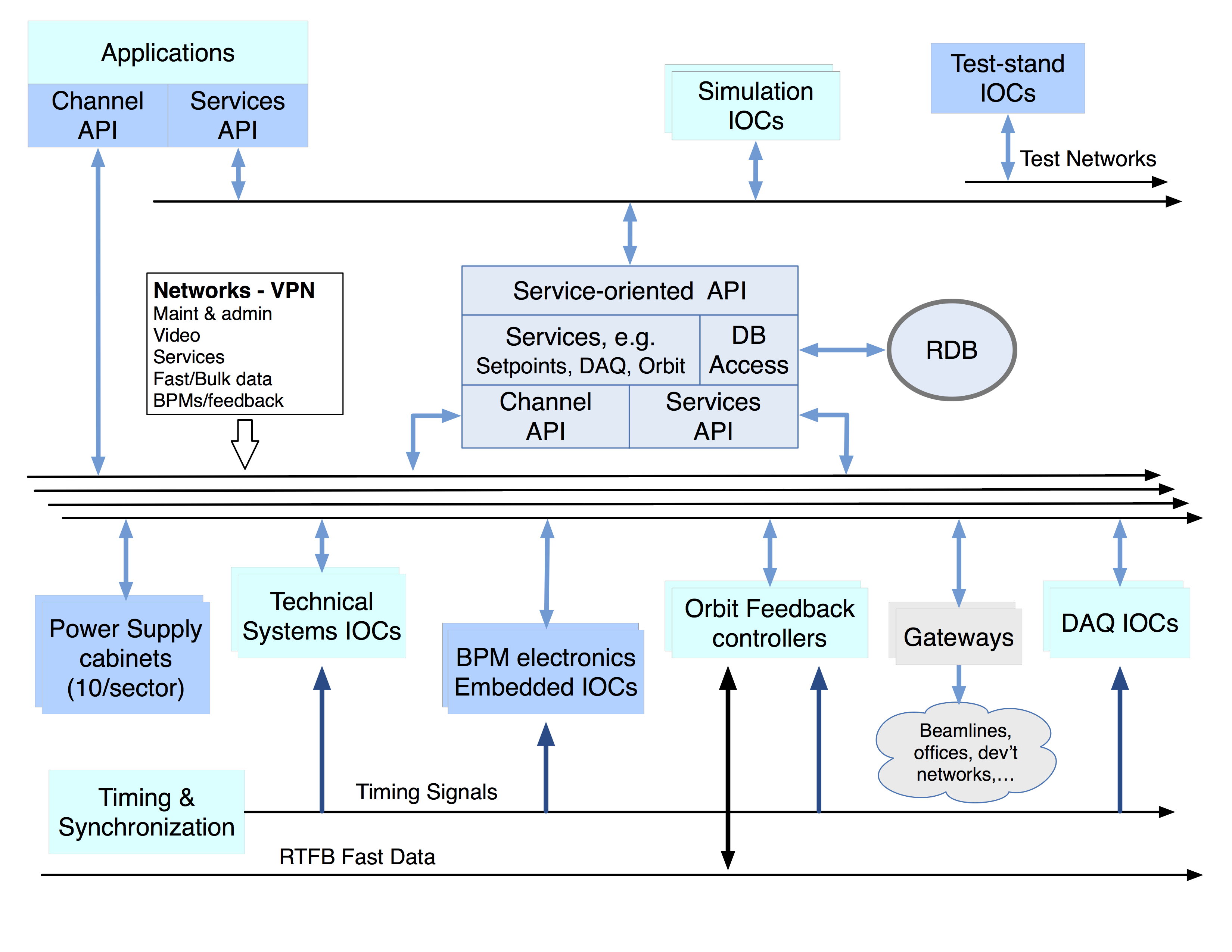|
The Real-time Feedback Data Acquisition (RTFB/DAQ) system represents software framework and tools that enable fast data collection for controls, statistics and diagnostics associated with the state-of-the-art embedded controllers utilized by the APS Upgrade multi-bend achromat accelerator (MBA). |
| Description |
|
The Real-time Feedback Data Acquisition (RTFB/DAQ) system represents software framework and tools that enable fast data collection for controls, statistics and diagnostics associated with the state-of-the-art embedded controllers utilized by the APS Upgrade multi-bend achromat accelerator (MBA). The DAQ software interfaces with several technical subsystems to provide time-correlated and synchronously sampled data that can be used for commissioning, troubleshooting, performance monitoring and early fault detection. The key features of the system include capability to acquire data from multiple subsystems at various sample rates, support for continuous data acquisition, and ability to route the data to any number of applications. Future work will focus on extending the system functionality to provide access to BPM turn-by-turn data, as well as to enable power supply monitoring |
| Distribution |
| https://svn.aps.anl.gov/ctlsdaq |
| Acknowledgements |
|
The RTFB/DAQ is developed, and is supported and maintained by Sinisa Veseli of the XSD Scientific Software Engineering & Data Management group (XSD-SDM) and Ned Arnold, Tom Fors, Dan Paskevan, Hahn Bui, Anthony Pietryla, and Steve Shoaf of the Controls group, and John Carwardine, Glenn Decker, and others from the APS Upgrade project with funding from the U.S. Department of Energy (DOE) Office of Science under the APS Upgrade project. Argonne National Laboratory is supported by the Office of Science of the U.S. Department of Energy. The Office of Science is the single largest supporter of basic research in the physical sciences in the United States, and is working to address some of the most pressing challenges of our time. For more information, please visit science.energy.gov. |

